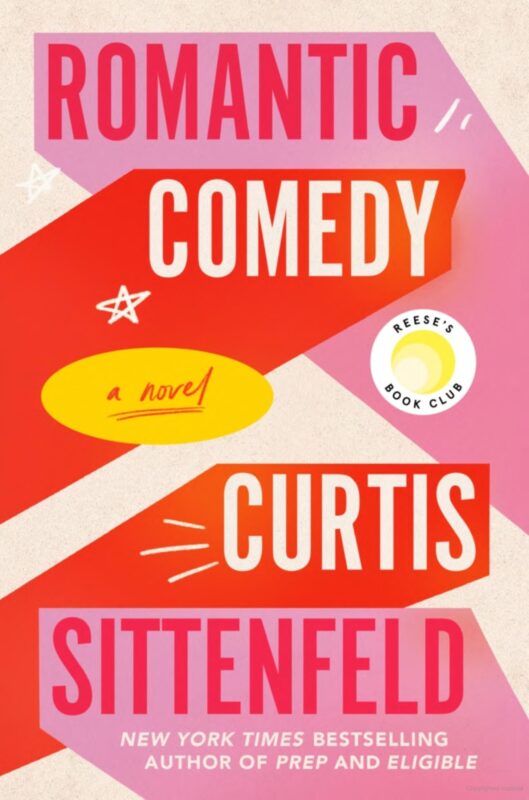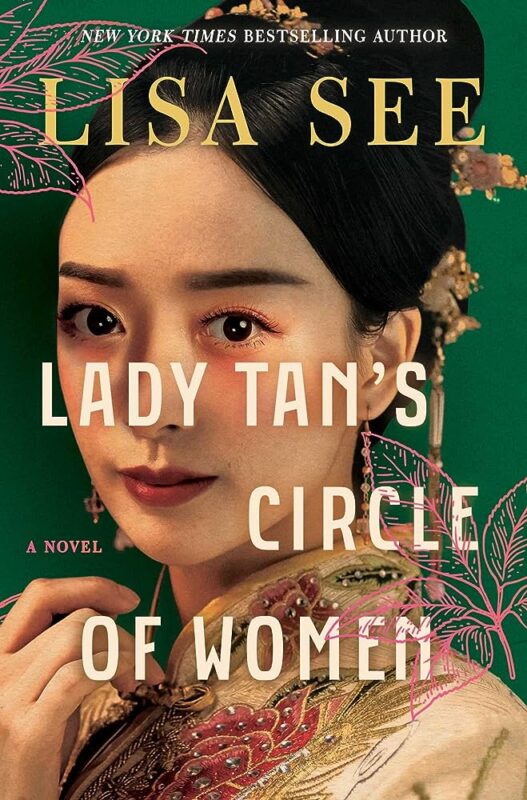This summer seems like so many books, so little time
So many books, so little time. And it seems this summer I have read a plethora of super good ones.
Let’s start with “Romantic Comedy.” It’s delightful. Author Curtis Sittenfeld, born Aug. 23, 1975, is the second of four children. Her mother is Catholic, her father is Jewish and she graduated from the same Massachusetts boarding school I went to back in the day.
Interestingly, I picked up her latest novel because my Groton roommate, Naomi, with whom I have remained friends for more than four decades (our first year at the school was the same year Sittenfeld was born), had just seen Sittenfeld read at a conference and was giving the book rave reviews.

The star and narrator of “Romantic Comedy” is Sally Milz, a sketch writer for a TV show called The Night Owls (TNO), which struck me as a lightly disguised SNL. Her heart had been trampled a few times and, no longer on the prowl for love, we find her, at the beginning of the novel, focused on her career, her widowed stepfather and the occasional rather uninspiring hook-up.
The first scene of the novel opens with Sally, in bed, early in the morning, reaching for her phone (a bad thing to do, she knows) and discovering that her co-worker Danny Horst and the curvy, red-haired, beautiful, sweet, charming, famous movie star, Annabel Lily, have started dating.
“I was furious,” she writes. Furious not because she was in love with Danny or with Annabel Lily, and not even because “two more people in the world had found romantic bliss while (she) remained mostly single.”
“The reason I was furious,” she explains, “was that Annabel Lily was a gorgeous, talented, world-famous movie star and Danny was a schlub. He wasn’t a bad guy, and he, too, was talented. But for Christ’s sake, he was a TV writer, a comedy writer — he was a male version of-me.”
Danny was pasty-skinned and sleep-deprived, often high or tripping, socially anxious and a consumer of porn, not to mention going bald and a frequent smelly burper.
Danny “was like a little brother to me,” says Sally. “I adored him, and he stank and got on my nerves. But his foul and annoying ways had, apparently, not precluded Annabel Lily’s interest.”
Sally decides that this new dating development exemplifies what has become a trend: a romance between a beautiful, uber-talented, famous woman and a significantly less attractive, less successful male.
“And this, of course,” says Sally, “was the essence of my fury: that such couples would never exist with the genders switched, that a gorgeous male celebrity would never fall in love with an ordinary, dorky, unkempt woman. Never. No matter how clever she was.”
Sally then does what she often does, which is to channel her fury into comedy, as a way to cure herself. But then Noah Brewster, a stunning pop music idol with a history of dating gorgeous young female models, signs on as host and musical guest of TNO and things get friendly, then cozy, then steamy, altogether violating and utterly discombobulating The Danny Horst Rule and everything Sally has learned and assumed about love and romance.
This book is very well written; snappy, funny, witty, with great characters, excellent dialogue and a lightness that is a departure, I would say, from the two other Sittenfeld novels I have read (“Prep” and “American Wife”). Also, it provides fun insights into the creation of late-night TV. Try it, I’m betting you will love it, as I did.

A very different read is “Jacket Weather,” published in 2021. Another love story, told in fragments. Mike, the narrator, and a woman named June, knew each other back in the 80s in New York City and find each other again three decades later.
As author Mike DeCapite said in a Cleveland Review of Books interview: “‘Jacket Weather’ covers 10 years, but it collapses them so that everything that happens in one of those 10 Septembers is in the September part of the book, and the same with October and so on. It seems true to my experience. You remember that something happened in a particular month or season but not necessarily what year.”
The epigraphs of this book are apropos and set the tone for what’s to come. From Tom Verlaine (American singer, guitarist, songwriter and close friend of Patti Smith): “I saw the color that sent the geese south.”
And from George “Wydell” Jones Jr.: “I’ve got a girl named Rama Lama Lama Lama Ding Dong.”
Though this novel is a work of prose, it often reads like poetry, with a vein of rock and roll running through it, creating an unusual and compelling mix; a work of art that is not only the love story of Mike and June, but a love story, I would say, of the city itself.
“R
O
S
E in red neon, a pair of sneakers hanging from the moon.”
At times, this novel almost reads like a scrapbook, a collection of fragments, thoughts, images, visual photographs. But it reads fast and, truly, I had a hard time putting it down.
“As we came in over Brooklyn I was at the window, trying to pick out her building across the river. Shadoobee.”
“One brown whirly pod on the balcony. Helicopters, I think we called them. Autumn in the clouds at dawn.”
I loved this book. Original, lyrical, evocative, deeply romantic and utterly unique. Can you call a work of fiction painterly? If so, it’s painterly. Highly recommend.
Lisa See is the bestselling author of a whole bunch of books, most of which take place in Asia. Have you heard of her, read her books? I am a huge See fan. Her latest, “Lady Tan’s Circle of Women” is a must read. A historical novel, it is based on the life of a woman physician who lived in the Ming dynasty in 15th century China.
The story begins in 1469, when the main character, Tan Yunxian, is 8 years old. This was a long, long time ago; more than two decades before Columbus discovered America, the author explains, when western medicine consisted mostly of alcohol, herbs and bloodletting with leeches.
Early on in this novel, we read the words of the great physician Sun Simiao: “Women are 10 times more difficult to treat than a man.”
This is not just because of yin and yang or of the outside world of men and the inner chambers where women are expected to reside, but because “women become pregnant, give birth and endure monthly loss of blood. They also suffer from having different temperaments and emotions than men.”

Ru Luan, Tan’s celebrated and much-decorated cousin, writes, “My cousin has excelled at treating women because she has shared in the losses and joys of what it means to be a female on this earth.”
Tan, as a child, ends up hanging out a lot with her grandmother, one of only a handful of female doctors in China at the time. From her grandmother Tan learns the fundamentals of Chinese medicine, as well as various methods of treating women’s illnesses, many of which are a result of childbearing.
Early in the book and early in her life, Tan befriends a girl her own age who is a midwife-in-training, and the two girls’ friendship becomes a powerful force running through the novel. Footbinding, arranged marriage, multiple wives living in the same household, hierarchies, childbirth and life sequestered from the outside world are some of the challenges faced by women of the time, not to mention the attitude toward educated women, summed up by Confucius, who wrote, “An educated woman is a worthless woman.”
This is a gripping, fascinating, captivating tale. I have never been disappointed by See’s novels, and this is one of her best. It transports the reader to a faraway place in a faraway time, but the chord it plays will resonate with most women living today. I had so many emotions while reading it. It contains so much strength, so much devotion, so much love, so much hardship, so much heartache, so much wisdom, so much courage and so much contortion on the part of females trying to live and thrive (and in Tan’s case, practice lifesaving medicine) in a patriarchal and often brutal society.
Highly recommend. If you have read and enjoyed Lisa See’s novels, you will love this one. If you have never read a Lisa See novel, I recommend you give her a try. She is really a master.
As I said, so many books, so little time. And my time is up, for now. Happy reading.
